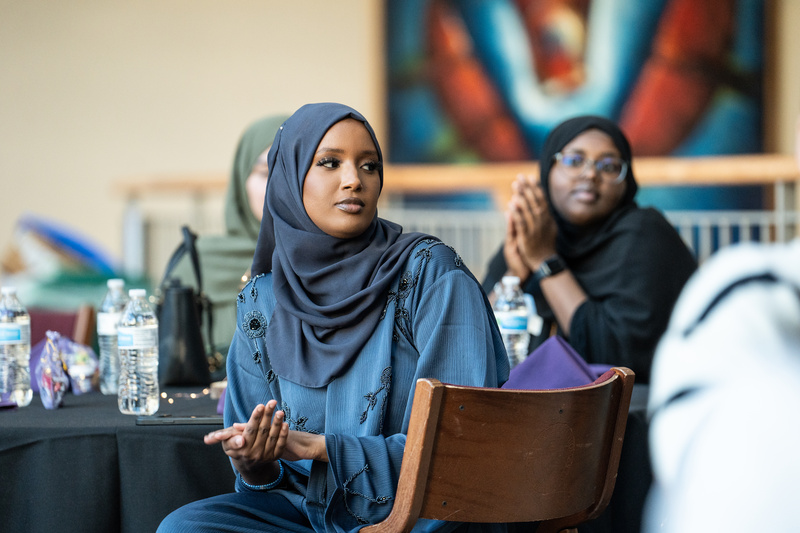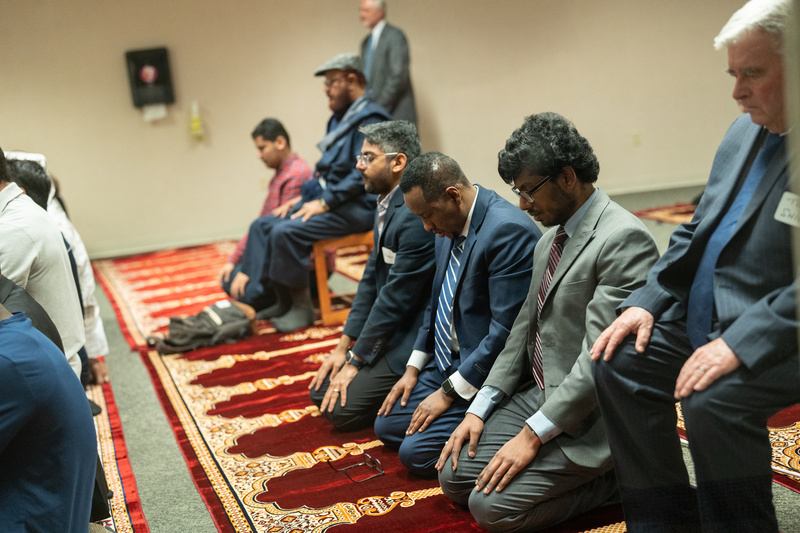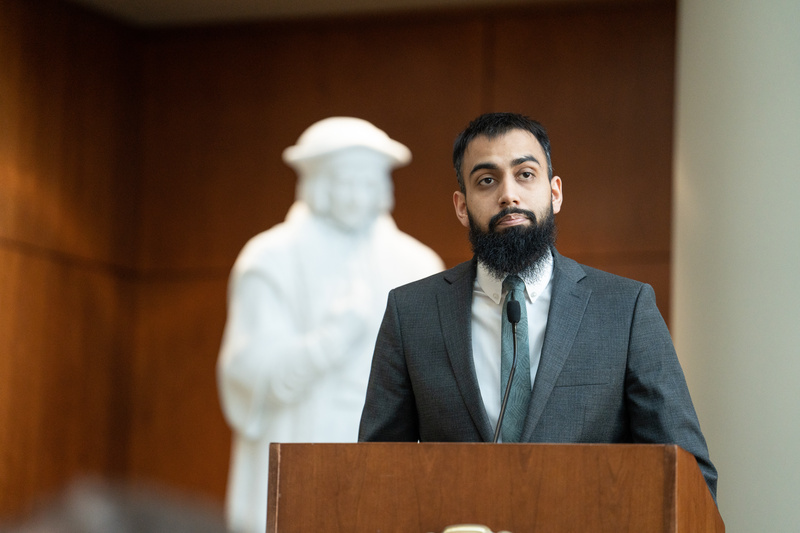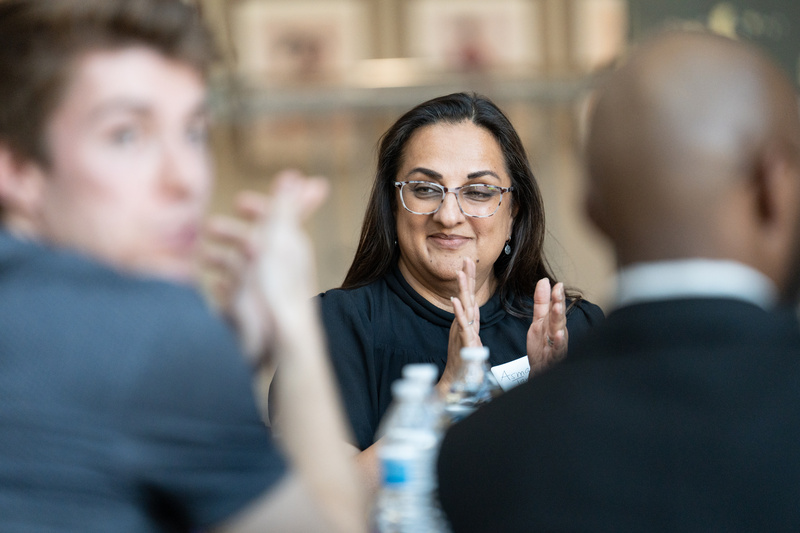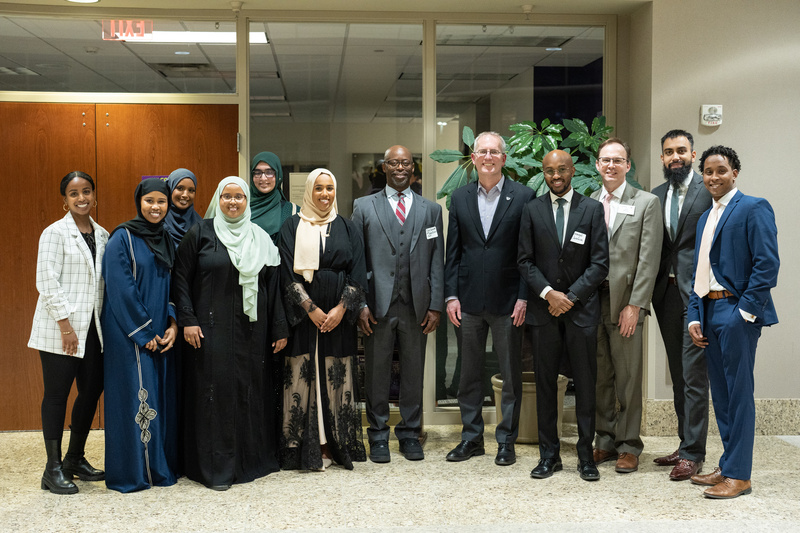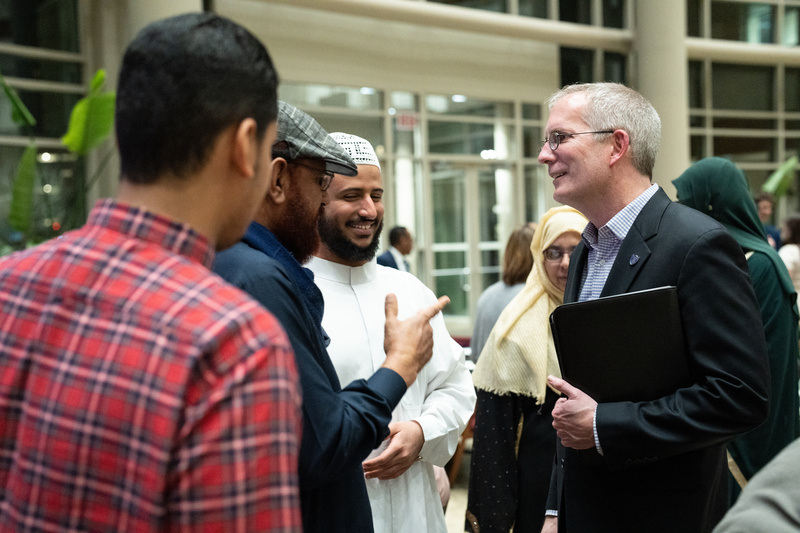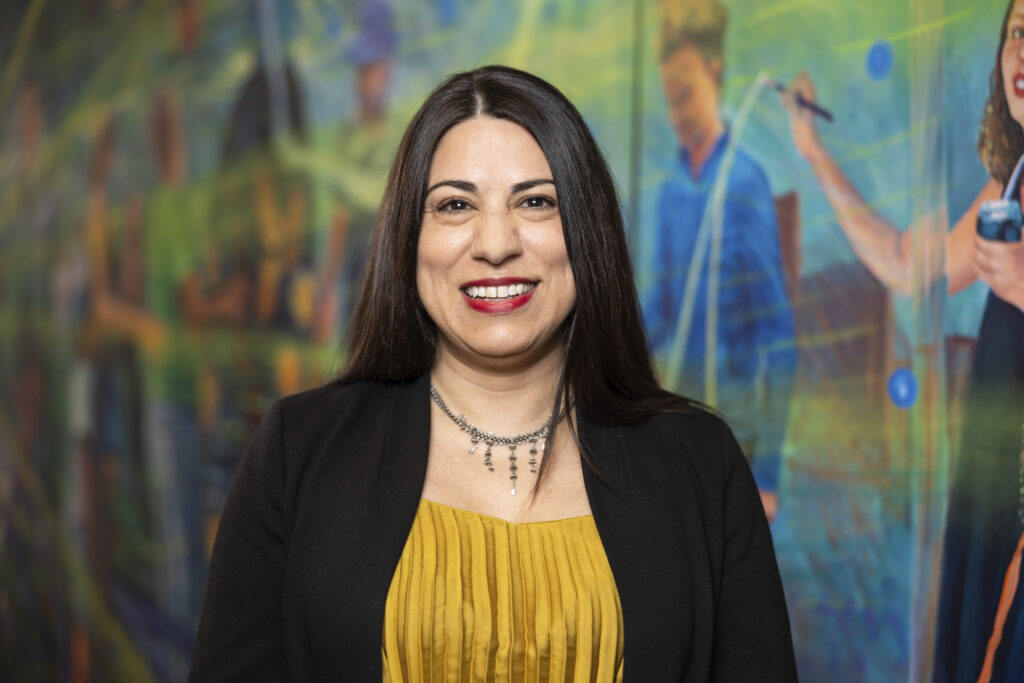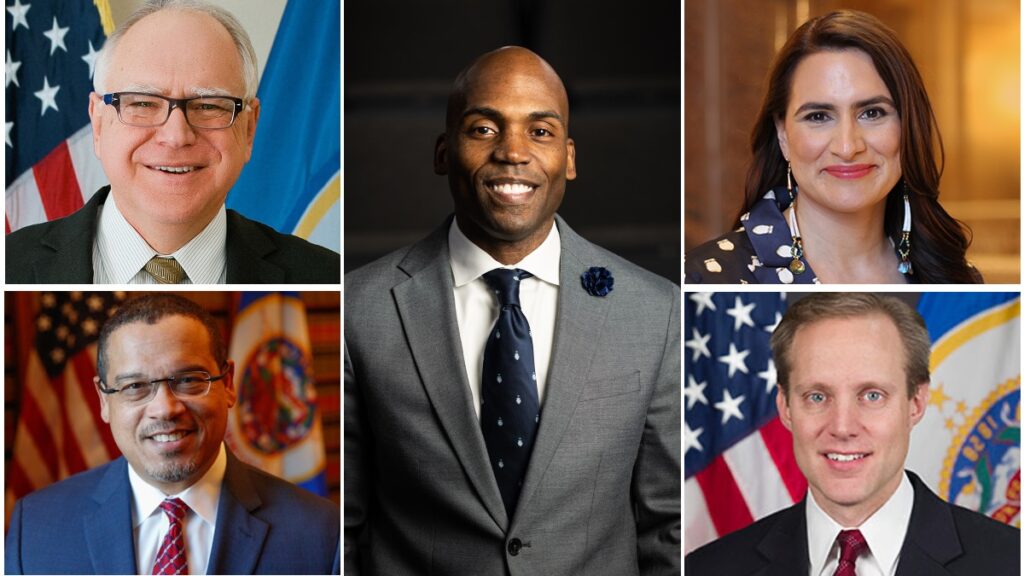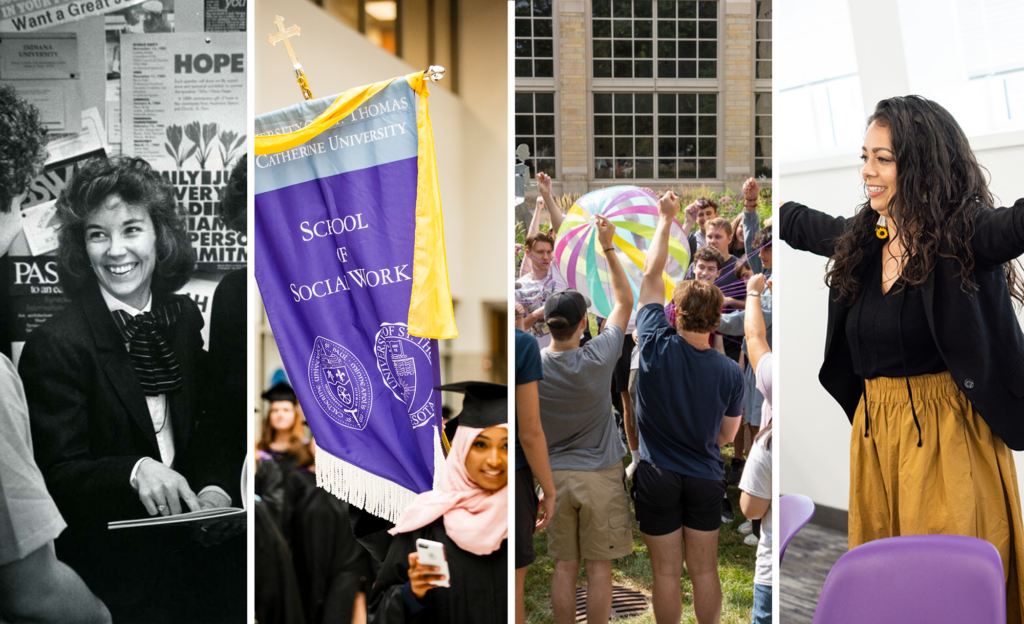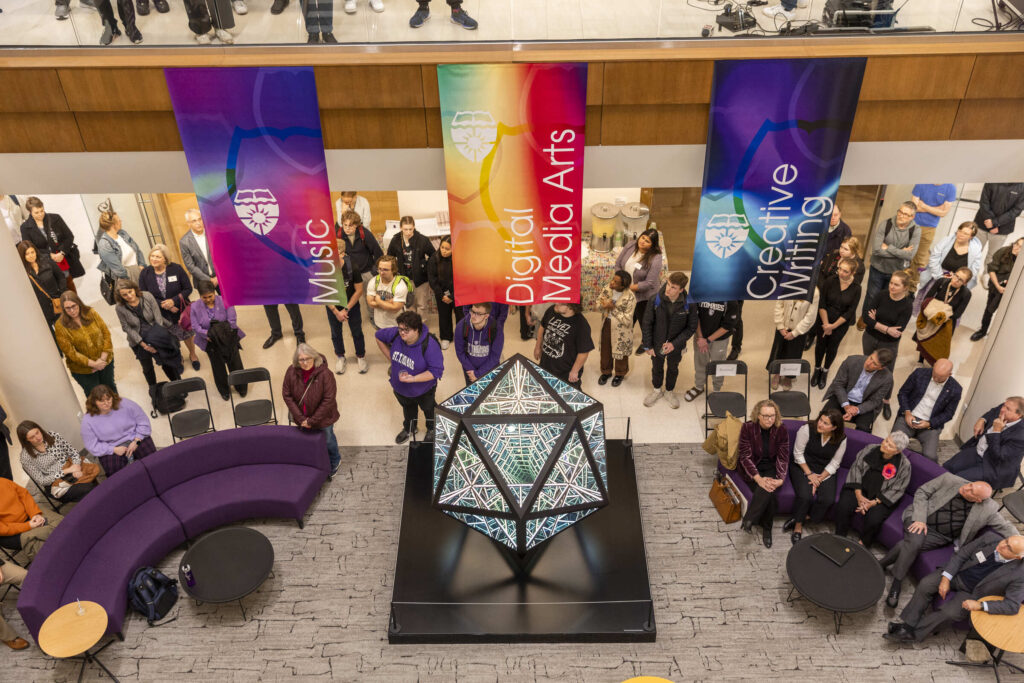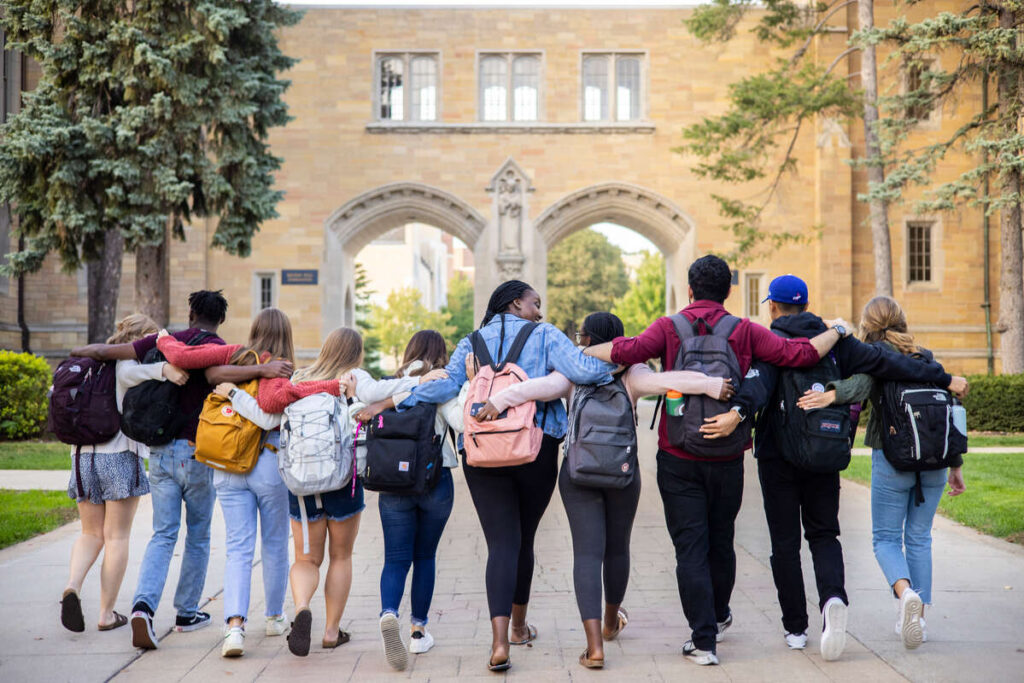The University of St. Thomas School of Law was aglow with activity as it co-hosted its second annual Ramadan iftar dinner Wednesday, April 12, in the Schulze Grand Atrium on the Minneapolis campus.
“This (event) is important because this is our religion. To me, religion is the most important thing to a person,” Noor Dastagir, 2L student and organizer of the event, said. “I know when I study for the finals, I want to go pray. I wash my face, pray for a couple of minutes, and it helps me release all stress.”
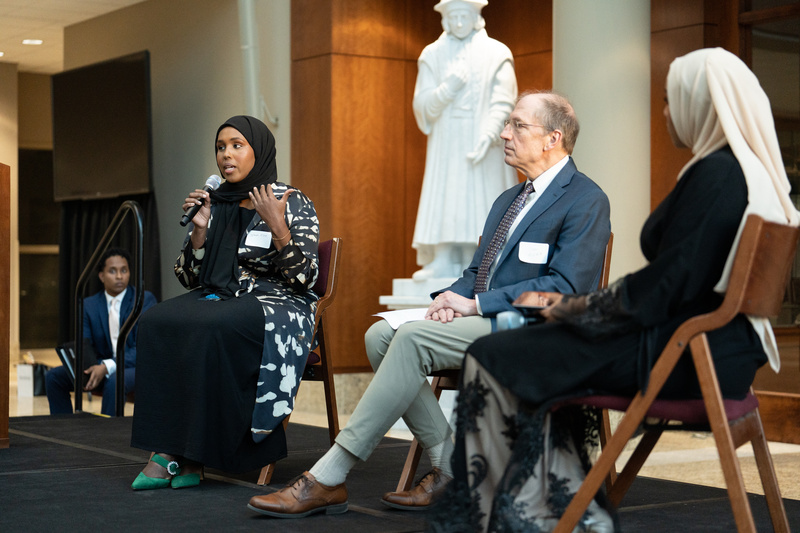
The iftar, which for Muslims is the time of breaking their daylong fast, was accompanied by breaking bread and breaking stereotypes with the theme “Islam and the American Legal System” featuring guest speakers. Minnesota Assistant Attorney General Ifrah Esse participated in a panel discussion with Professor Thomas Berg, the James L. Oberstar Professor of Law and Public Policy at the University of St. Thomas. Campus Ministry Chaplain Dr. Sadaf Shier planned for 100 attendees, but ended up hosting 128, as the topics of religion and the legal system coalesced into common allyship and intellectual discussion.
Interim Dean of the School of Law, Joel Nichols, shared his academic views on Sharia and its misconceptions in the American legal system. President Rob Vischer touched upon why the importance of combining faith and diversity while pursuing one’s mission in life is so prevalent in this day and age, especially when there is discrimination in the legal system. He believes that building a bridge that combines understanding and admiration for each other’s traditions is the catalyst for forming lawyers who are proud of their various identities.
“Tolerance is such a thin and uninspiring vision versus mutual understanding, respect and care, which requires putting in time to learn, and events like this are great for all community members to learn about traditions that may not be their own,” Vischer said. “Law school should be a process of figuring out how your core ideals, beliefs and values shape who you aspire to become as a lawyer and celebrating iftar dinner during Ramadan is just one example.”
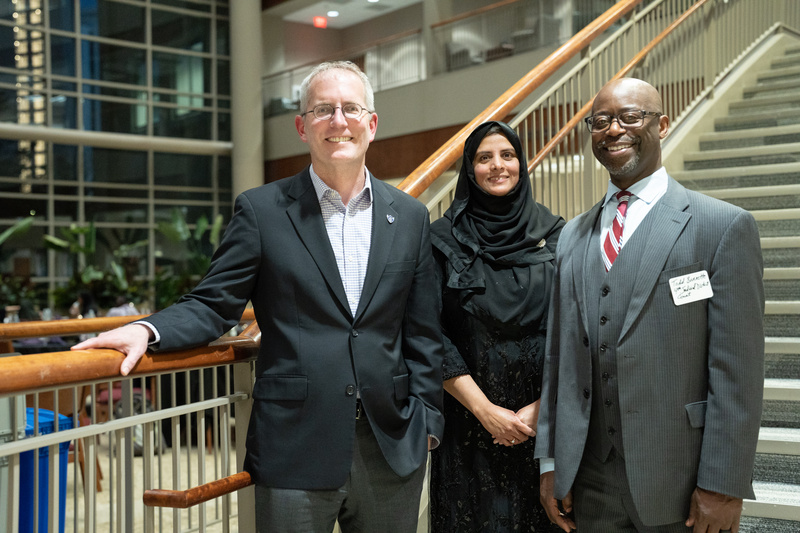
The event was open to the community, regardless of religion. Prominent figures from the Twin Cities and St. Thomas communities, particularly those who are invested in the field of law, were in attendance. They included Minnesota’s 4th Judicial District Chief Judge Todd Barnette, who was sworn in as Hennepin County’s first chief judge of color on July 1, 2020, near the start of a global pandemic and not long after the murder of George Floyd. His judicial district, which has a maximum of 63 judges and a large caseload, didn’t stop him from coming to the School of Law’s iftar.
With the courtroom being his home turf, Barnette said he sees events like these as a way to promote the practice of law, while keeping inclusivity and respect at the forefront of the discussion.
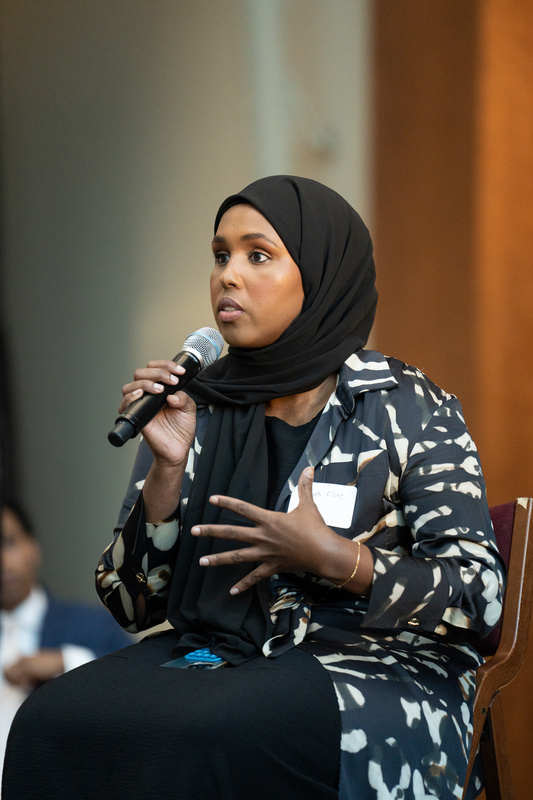
“I think what St. Thomas law school is doing, at least from my perception, is a student can practice law and still be faithful, no matter what religion,” Barnette said. “We’re all human, and we all bring different things to the table. One of the things that we bring as lawyers is our faith, not that you can’t be a good advocate and be faithful, those things intersect.”
Cultural and professional identity was a topic that stood out from the night, and the panel led by 1L student and organizer Anisa Omar got the gears turning in terms of reflecting on history and bias. Omar asked Esse what it meant to be a Muslim woman of color in the law field, and the assistant attorney general noted its importance, but also the sense of ambiguity that comes with it.
“I wear a scarf and I’m a Black woman, sometimes when I walk into a room I wonder what they see first,” Esse said. Knowing herself and the people she works with is part of her mission: “It’s important to know your workers, and their faith traditions."
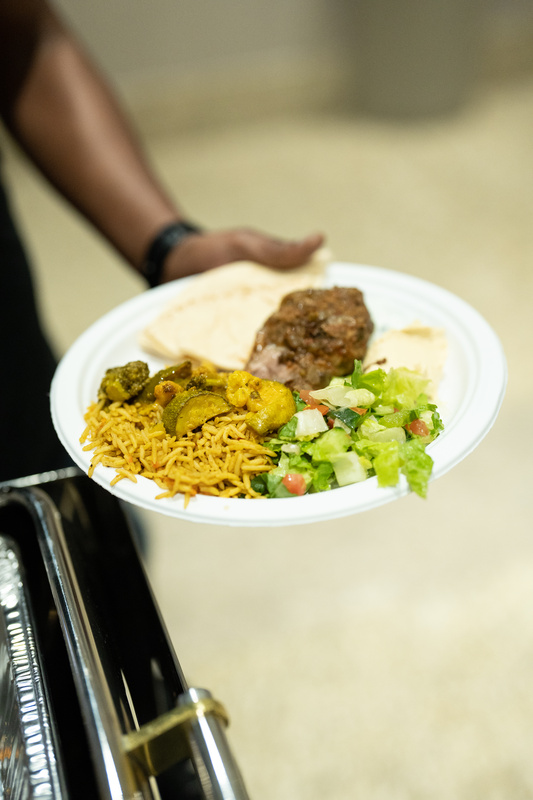
Berg touched upon a case on the East Coast of two Muslim police officers who had beards for religious reasons. Facial hair in general was prohibited by the force without having considered religious practices. He dissected the impact of government on religion and showed that sometimes the “separation of church and state” is just an ideal, not the staple of our constitution that Thomas Jefferson hoped it would be. Berg noted that if we’re going to apply laws that impact one religion disproportionately, that “freedoms for all of us stand and fall together.”
At 7:57 p.m., wooden serving boards with date fruits passed around at each table signaled the breaking of the day-long fast as undergraduate student Abdullah Saleh Al-Jaberi’s voice resonated throughout each crevice of Schulze Atrium as he chanted the call to prayer, otherwise known as “Adhan.”
Shier, in her role as a university chaplain, has sponsored several iftars this year in collaboration with the Muslim Student Association. “For me, it’s a huge relief, a sense of satisfaction that I’m serving people here, Muslims and non-Muslims, because an iftar gathering provides a safe space for everyone to sit together and talk about aspects of Islam or interfaith community in an informal way,” Shier said. “It promotes understanding about Islam, and the more we understand each other, the better we are at reducing and diminishing fear of each other.”
